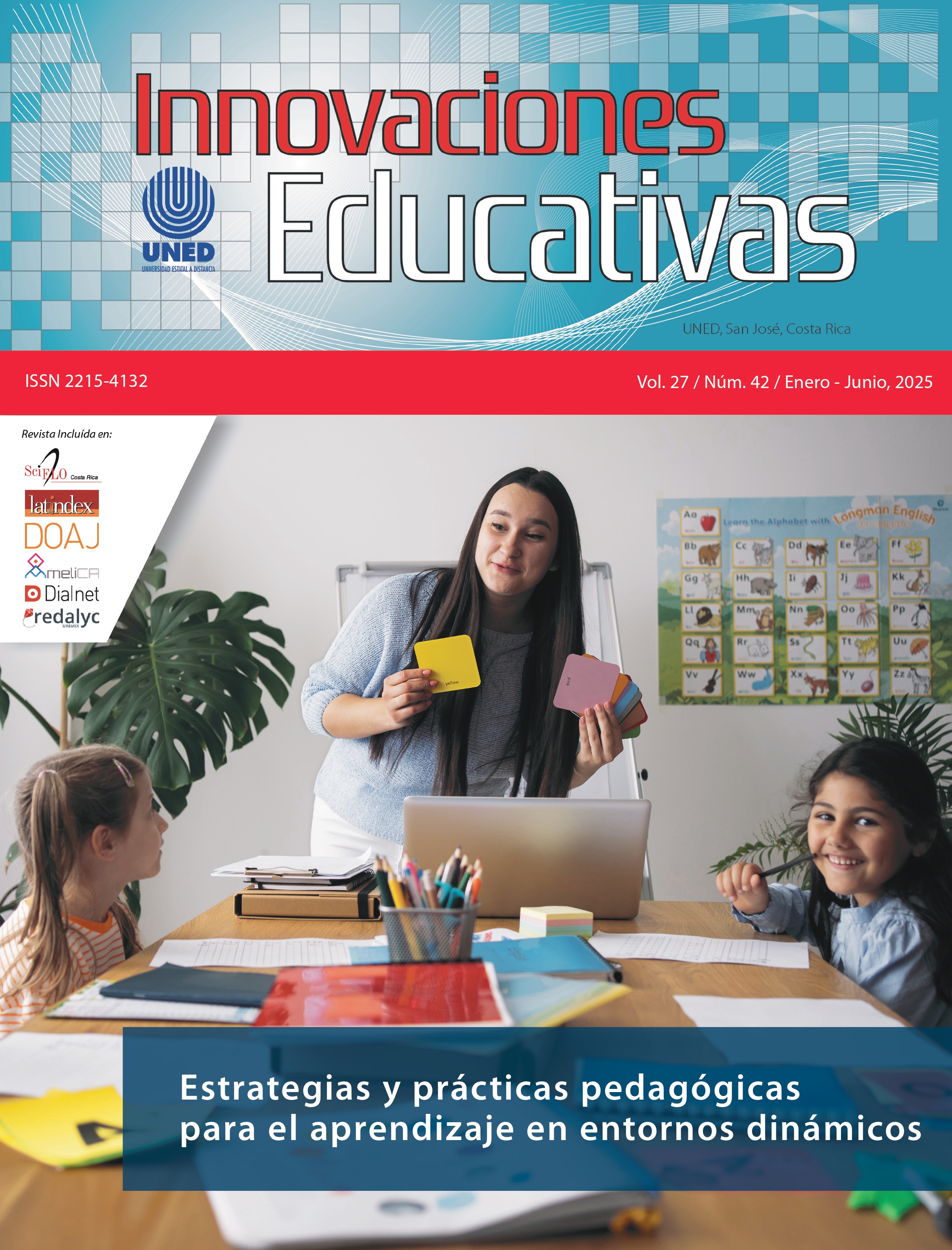Tourist rally: a gamified learning experience for an in-person educational tour
DOI:
https://doi.org/10.22458/ie.v27i42.5367Keywords:
Active learning, Educational strategy, Pedagogical innovation, Educational game, Teaching methodAbstract
The article shows how gamification methodology can transform educational experiences in an academic discipline with a strong practical component. The course "Technology Applied to Tourism" is a hybrid course that is part of the Diploma in Sustainable Tourism Management, offered by the Chair of Tourist Entrepreneurship at the Universidad Estatal a Distancia de Costa Rica (UNED). It has been offered since 2020, using active learning in combination with gamification methodology, educational rallies, and technological tools. The objective was to systematize the experience of using digital applications and gamification methodology, including the rally technique, to conceive innovative teaching strategies that enhance student participation and active learning during in-person tours. A qualitative descriptive approach was implemented for the recording and retrieval of data for this systematization. Additionally, a Google Forms® questionnaire directed at students was used, integrating both open and closed questions. The teaching staff utilized a log developed in Microsoft Word®, which established criteria for relevance and representativeness to showcase the systematization of the experience; the UNESCO approach was utilized. The main conclusion is that the rally promotes teamwork and active participation, as well as encourages local tourism. For future research, it is suggested to explore other didactic strategies that provide innovative guidelines for developing in-person tours.
References
Antonio, O. L. J., Velásquez, M. E. V., Félix, J. V. H., Velasco, G. A. G. y González, A. Á. (2023). Rally de ordenación topográfica: Una actualización con sentido. Biblioteca Universitaria, 26(2). https://bit.ly/3N6lj0P
Ariza, M. R. (2010). El aprendizaje experiencial y las nuevas demandas formativas. Antropología Experimental, (10). https://bit.ly/3TNoIW9
Castillo, A. G. R., Méndez, M. E. y Chávez, C. M. R. (2020). El desarrollo de las competencias didáctico-digitales a través de las nuevas tendencias educativas1. Evaluación de programas y competencias dígales en la educación, 35. https://bit.ly/3TOtRxh
Castillo Guzmán, M. P. (2023). La gamificación como estrategia innovadora para estimular el aprendizaje activo. Horizonte pedagógico, 12(2). https://bit.ly/3XEwdji
Elías, M. S., Lisset, Y., Moreno Beltrán, R. y Aguirre Caracheo, E. (2023). Implementación de gamificación en ambientes virtuales de enseñanza-aprendizaje para la educación superior. RIDE. Revista Iberoamericana para la Investigación y el Desarrollo Educativo, 14(27). https://bit.ly/3ZLOSMB
García, J. S. G., Inguanzo, R. F., García, L. H. J., Valdez, D. A. S. y Ramírez, S. K. M. (2024). Código QR en la Educación Física para el desarrollo de rally´ s escolares. Emergentes-Revista Científica, 4(2), 1-15. https://bit.ly/3BrX4Yw
Hernández-Sampieri, R. y Mendoza, C. (2020). Metodología de la investigación: las rutas cuantitativa, cualitativa y mixta. Mc Graw Hill.
Madrigal, S. (2019). Planificación didáctica de las giras de campo, con el uso de la tecnología educativa, para el mejoramiento del proceso de enseñanza y aprendizaje, en la carrera Manejo de Recursos Naturales. Universidad Estatal a Distancia de Costa Rica. https://repositorio.uned.ac.cr/handle/120809/1817?locale-attribute=es
Rodríguez, Y. P. C., Chicué, V. B., Ardila, S. E. G. y Gómez, S. A. H. (2023). Estrategia de formación docente para el diseño de experiencias gamificadas de aprendizaje en la Universidad de La Salle, Colombia. Comité Técnico/Technical Program Committee.
Sandoval, E. B. C., Zepeda, S. I. L. y Carlos, V. (2018). Rally de riesgos naturales: Estrategia educativa para impulsar una cultura de prevención. Educación Ambiental y Sustentabilidad, 210.
Seaborn, K. y Fels, D. I. (2020). Gamification in theory and action: A survey. International Journal of Human-Computer Studies, 74, 14-31. https://doi.org/10.1016/j.ijhcs.2014.09.003
Unesco. Oficina de Lima. (2016). Sistematización de experiencias educativas innovadoras. Repositorio Ministerio de Educación Perú. https://bit.ly/3TOEyQk
Unesco. (s. f.). Tesauro de la UNESCO. https://bit.ly/3UdjQtN
Downloads
Published
How to Cite
Issue
Section
License
Copyright (c) 2025 Innovaciones Educativas

This work is licensed under a Creative Commons Attribution-NonCommercial-NoDerivatives 4.0 International License.

